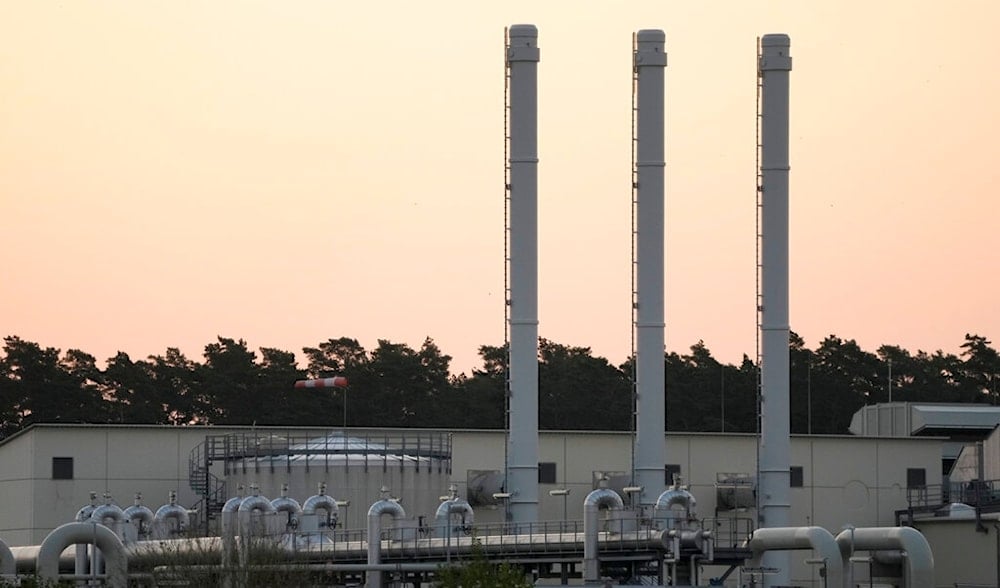EU delays exit proposal from Russian energy amid geopolitical shifts
The EU's long-awaited exit strategy from dependence on Russian energy sources has been delayed as the West faces a geopolitical shift.
-

The sun rises behind the landfall facility of the Nord Stream 1 Baltic Sea pipeline and the transfer station of the OPAL gas pipeline, the Baltic Sea Pipeline Link, in Lubmin, Germany, July 21, 2022. (AP)
The European Union has put on hold the release of a long-anticipated proposal aimed at ending its dependence on Russian fossil fuels and nuclear technology, as US President Donald Trump moves to normalize relations with Moscow and shape his vision for peace in Ukraine.
A senior EU official, speaking to POLITICO, confirmed that while work on the energy roadmap is ongoing, it will not be unveiled later this month as initially planned. An internal agenda from the European Commission also indicates that the proposal’s presentation has been postponed.
"We are still moving forward with the Roadmap, it is being prepared, but the timing has changed in light of the latest geopolitical developments. The date will be communicated in due course," the official said.
EU Energy Commissioner Dan Jørgensen had pledged to introduce concrete measures within the first 100 days of his tenure to phase out Russian oil, gas, and nuclear fuel from the bloc’s energy systems— a deadline that will now be missed.
Meanwhile, the EU is engaged in discussions with the Trump administration, with talks expected to include commitments to increase imports of American gas. However, Washington’s recent direct negotiations with Moscow have raised uncertainty over the future of Western economic ties with Russia.
EU spent more on Russian oil, gas than Ukraine aid, report finds
Despite its consistent calls for cutting off Russian energy sources, the EU spends more money on oil and gas from Russia than it spends on financial aid to Ukraine, a report published by the Centre for Research on Energy and Clean Air (Crea) revealed.
The report marking the third anniversary of the war in Ukraine has found that the EU spent around 23 billion dollars on Russian oil and gas in the third year of the Russo-Ukraine war, despite attempts by Europe to reduce its reliance on Russian energy imports to avoid aiding it. Meanwhile, Ukraine received around 19.6 billion dollars in financial aid, according to the Kiel Institute for the World Economy.
"Purchasing Russian fossil fuels is, quite plainly, akin to sending financial aid to the Kremlin and enabling its invasion. [It’s] a practice that must stop immediately to secure not just Ukraine’s future, but also Europe’s energy security," said Vaibhav Raghunandan, co-author of the report and analyst at Crea.
In 2024, the European Union spent 39% more on Russian fuel imports than it set aside for Ukraine, excluding military or humanitarian contributions, and the report highlights that Moscow earned 253.6 billion dollars from its global fossil fuel exports, with its revenues since the start of the war inching closer to the trillion dollar figure.
Read more: Russia ready to supply fuel to EU as West signals for cooperation

 3 Min Read
3 Min Read









